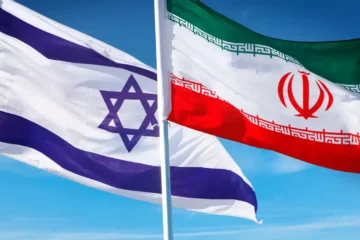Reforming Bureaucracy needs ‘tangible’, performance-oriented criteria

Bureaucracy or administration is meant to provide services to the masses; resolving public issues through utilizing legal authority, remaining in front of different calamities including COVID-19 to safeguard citizens from its adverse impacts through intervention and awareness, and serve coordination among different stakeholders. The government remains updated on public affairs and interventions through the bureaucratic machines.
In large, bureaucracy is termed as a department or set of institutions that is budgeted by the government, and its employees are paid by the government through taxes by the people. In other words, a person who works to achieve government objectives is part of the bureaucracy.
We must say thanks to Gulick who wrote, “Notes on the Theory of Organization” in 1937 that was originally written for the United States (US) President Franklin D. Roosevelt as a committee member on Administrative Management popularly known as the ‘Brownlow Commission’ tasked with the reorganization of the federal executive branch in the US. In “Notes” Gulick coined POSDCORB to hint at the functions of bureaucracy or administration. POSDCORB stands for; planning, organizing, staffing, directing, coordinating, reporting, and budgeting. Undoubtedly, POSDCORB brought reform in the bureaucracy itself.
Cyberwarfare, propaganda & its place in the digital world
Pakistan has been keen and in the mode of bringing up reforms in the bureaucracy. Whether it is a democratic government or a self-appointed government, words on reforming bureaucracy keep on roaming in the state air.
And as far as Pakistan’s need is concerned, bureaucracy needs to be reformed not focusing on the history of two or three decades of the past, but, she has to kick off reforming bureaucratic history starting from the year 1947 –Pakistan appeared on the world map as a sovereign state – and until the current year 2021 along with curbing the menace of increased red tape-ism. Alas! Pakistan’s treasure resources have badly gone in no gain differently.
However, the world has adopted new ways of serving people on basis of their taxes paid, but Pakistan has still been following the old Rules of Business 1973 of the bureaucracy. Why not bureaucracy is coming out of that approach? Is it worthwhile for the country? Or it is reluctant to adopt change – able to benefit people at large —that is a need of the day.
Many of us might have certainly experienced the working style of bureaucracy in Pakistan. Getting a certificate or other right of benefit from the government requires a hierarchy of authority cycled into Rules of Business 1973. It just keeps the prospect beneficiary in the waiting.
It is common sense that when people have their taxes paid, then they undoubtedly deserve full service without any difficulty. And for that, the technology is here to serve the purpose. The world has moved to implement an effective and efficient method of servicing people. The conservative approach – paperless working style in particular — in offices has added ease to people and reduced their stress to some extent. Pakistan is on the verge of the right of reforms in the bureaucratic rules, regulations, mechanisms, structure, authority, and working style.
Problems of perception: Western media distorts what Pakistan is all about
According to the International Crisis Group’s report on Civil Service Reforms in Pakistan, many years of misconduct, political manipulation, and corruption have reduced Pakistan’s civil service to the incapability of providing effective authority and basic public services. The report further portrays that, “the country’s 2.4 million civil servants are widely seen as unresponsive and corrupt, and bureaucratic procedures cumbersome and exploitative.” When the misconduct, politicization of bureaucracy, and corruption remain rife in the country then how taxpayers shall be served at the cost of paying taxes.
First, the need is to reform bureaucracy/administration in Pakistan focusing 64% of the total population of Pakistan in youth proportion that needs more attention from the government and its machinery. The reforms should be; innovative, specific, measurable, attainable, realistic, time-bound.
Second, administration teams should be given handsome salaries and pension plans that must keep them away from the allegations of corruption. Their motive would turn into servicing people and the purpose of bureaucracy would certainly be achieved.
Third, the use of information technology should be adopted meaning that the huge and numbered high piles of record files are avoided and an innovative office management system is introduced in the bureaucracy.
Fourth, the hierarchical method of authority should be reduced to the number of not more than two (2) authority holders in order to ease the public in getting their works done.
Fifth, timely capacity-building programs – national and international — for bureaucrats and administrators should be offered by the government in order to learn the state-of-the-art model of servicing people in public office.
Sixth, alter Annual Confidential Reports (ACRs) to comprise tangible, performance-oriented criteria instead of subjective evaluations of officers’ characters.
If the reformed bureaucracy goes this right way, most of the public issues will be resolved and no problem would be left unaddressed.
Taliban Takeover: You got what you wanted, now it’s the time to deliver?
Islam and women’s rights vs. Feminism
Stay tuned to Baaghi TV for more. Download our app for the latest news, updates & interesting content!










